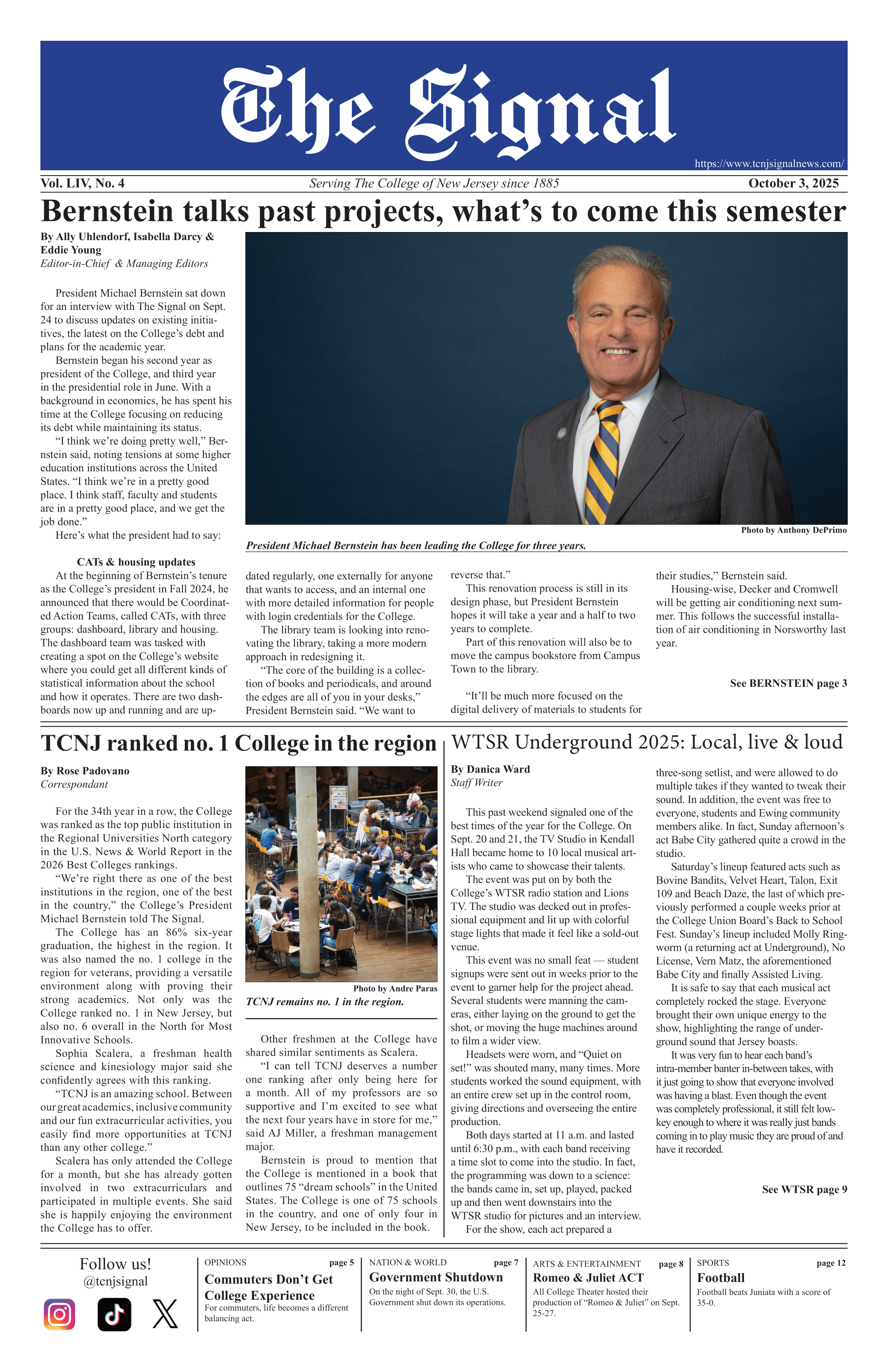At some point in your life, there's a good chance you've donated blood to the Red Cross, extra change to a charity you care about, or your old clothes to the needy. If you're female, would you ever consider donating your eggs?
Twelve years ago, one young woman, who will forever be unknown, did just that. Thanks to her, Dr. Helane Rosenberg, who once could not get pregnant, is now the proud mother of a twin boy and girl, who were one of New Jersey's first donor-egg babies. Rosenberg is the Ovum Donor Coordinator at IVF New Jersey, an infertility practice with an office in Lawrenceville. At a seminar to interest prospective donors on March 21, she shared her personal experiences as the recipient of donated eggs that were fertilized by her husband's sperm and then implanted into her uterus.
"As soon as I felt the babies kicking, it was such a miraculous, glorious feeling," she said on one of the several clips she showed from her interviews on television news programs like "Today" and "Eyewitness News." Back in 1993, the twins' birth was a breakthrough in infertility treatment.
Rosenberg now works to educate young women about egg donation and guide them through the process to help other infertile couples realize their dreams of childbearing.
Thirteen potential egg donors attended the seminar in Lawrenceville, perhaps attracted by an advertisement like the one that ran in The Signal: "Earn $7,000," it read in bold, black type, just above the large picture of a stork delivering a basket of eggs.
When it comes to egg donation and enabling infertile women to bear children, infertility centers nationwide target college females, as they are intelligent and physically at their prime.
The decision to donate is ultimately an emotional and ethical one. A woman must be comfortable passing on her genes to a child she'll never know and with having a role in an alternative form of conception.
Kelly Wood, sophomore English and secondary education major, is not one of those women. She doesn't consider egg donation consistent with God's Word.
"I think it's kind of like trying to play God and messes with God's plan for human life, the way he created sex and childrearing," she said.
She feels children are a gift that should come from God, not from a woman who makes money off of egg donation.
Rosenberg disagrees, choosing to hold those who donate eggs in high regard. "Donors are gutsy and strong-minded," she said. "They're people you would admire."
The Medical Aspects
Controversy aside, egg donation is a time-consuming process. At the IVF seminar, Dr. Melissa Yih, an infertility specialist, reviewed what she called the "nitty-gritty" details.
After women fill out a questionnaire, they are matched with an unknown recipient who has similar physical features and ethnic background. From there, the donor undergoes a psychological interview and extensive medical screening to make sure she carries no genetic or infectious diseases. The ovaries are then screened, and once determined to be healthy, the donor is put on birth control to regulate her menstrual cycle. For 14 to 20 days, she will also go on medication to prevent her from ovulating prematurely and to increase the number of eggs she releases.
Normally, the ovaries release only one egg per menstrual cycle, but the medications increase that count to around 12 or 14.
Donors will have to inject the medication with a small needle, similar to diabetics with insulin."We teach you how to do it and even though it may seem overwhelming, pretty much all donors can do it without any difficulty," Yih said. "It is important we keep an eye on you," Yih said. "We don't want you to make too many eggs."
Retrieval of the eggs is done under IV sedation via transvaginal ultrasound, so abdominal incisions are not necessary.
Rosenberg said that with sedation, the donor will not feel any pain, though without it she'd feel only a sharp pinch.
The donation process has its drawbacks. Lih said the medication can make a woman feel bloated, pelvic pressure or cramping, which are common side effects of the ovaries expanding to accommodate more eggs. Donors also run the risk of bleeding and infection.
"That's true of any surgical procedure," Lih said. "But only less than one percent have complications."
The long-term risks of the fertility drugs that stimulate the ovaries and of the egg donation process in general are still unknown, as it is a relatively new procedure.
Qualities of a Donor
Infertility clinics seek egg donors with a wide variety of physical traits and ethnic backgrounds so a recipient can be matched with the woman who best resembles her.
"People in the world look different and we need donors who are a good cross section of what the world represents," Jane Tervooren, marketing director of IVF, said.
Though it depends on the infertility practice, most egg donation programs operate on total anonymity between donor and recipient. At IVF, the recipient will only receive a baby picture of the donor, to give her an idea of what genetic features she can expect to see in her child.
Besides being healthy young women, donors need a certain mentality. They cannot have an attachment to their eggs or think of them as anything more than biological material.
For this reason, Carly Cohen, sophomore nursing major, said she personally could not donate her eggs.
"I can't wait to have kids and be pregnant and I think I have too much of an emotional attachment to my own eggs," she said.
Cohen, however, does not have an ethical problem with egg donation.
"It's a good option for couples who are having fertility problems but really want a child," she said. Ethical issues are something with which a donor must also come to terms. Recipients of her eggs could possibly be single women, women over 40 or lesbians, creating untraditional family structures.
According to msn.com, it is most frequent for older women above the age of 39 to turn to egg donors. In 2001, 76 percent of women over 45 who relied on assisted reproductive procedures used donor eggs.
Donors who do not have emotional or ethical problems with the procedure might be attracted by the hefty paycheck, which can amount to $42,000 at IVF if the donor goes through the process for the maximum six cycles.
"I really believe at first they're attracted by money, but once they get in (the program), they understand and learn the value of the gift they're giving to infertile couples," Tervooren said. "It comes from the heart."
Another quality egg donors have in common is their age -the majority is college students. Rosenberg said that 75 percent of donors at IVF are college females.
Rosenberg described the typical college female donor as "a physical risk taker," someone who "feels confident that their body works right, likes their family and likes to help people."
In meeting with the college student donors at IVF, Rosenberg said they are confident about their looks and want to pass them on.
"They say, 'I want my eggs to be out there, I'm 21, don't have a boyfriend and I think my genes are terrific,'" Rosenberg said, paraphrasing conversations she's had with donors.
Nicole Kukawaski, president of the pro-life organization TCNJ Lifesavers and junior English major, offers a different perspective. She believes women selling their eggs may be exploited.
Relating egg donation to a lecture TCNJ Lifesavers recently held on stem cell research, Kukawaski said, "Women can sell eggs for high amounts of money, and if embryonic stem cell research goes on, the prettier, more athletic women could be solicited or used for eggs in order to get the 'good' genes, so to speak."
Impact on Infertile Couples
Rosenberg has used her personal success story as an egg recipient to not only inspire donors, but also to give infertile couples hope.
Msn.com reports that approximately 15 percent of American couples struggle with infertility. When fertility drugs and other technologies don't work, as happened in Rosenberg's case, donated eggs just might.
The pregnancy rate from egg donation can be over 60 percent, depending on the reputation of the practice. According to a Centers for Disease Control study of 384 infertility clinics nationwide, there were 3,629 pregnancies resulting from donated eggs in 2001. The cost of fertilization via egg donation is steep, usually in the low-to-mid $20,000 range per cycle, at least through IVF. Women who dream of a fetus growing inside them and giving birth to a baby, or babies, don't put a price on the pregnancy experience though.
While the option to adopt a child who desperately needs a family always remains, Tervooren doesn't feel infertile couples should be limited to it.
"Infertility is a disease," she said. "People (with it) deserve the right to have children if they want, and fortunately, medical science is at a point of sophistication where it can help most people."
Science and technology aside, egg donation's potential rests upon the personal choices of young women, particularly college students. But even among those who recognize its merits, the experience may still be hard to imagine.
Debbie Lingel, sophomore music major, tried to put the process into perspective.
"It reminds me of donating blood, even though I know donating eggs is going to make another human being," she said. "But it's kind of similar. When you give blood, you think to yourself, 'I'm actually saving another life.' When you're an egg donor, you think, 'I'm helping to make people happy with a new life.'"






